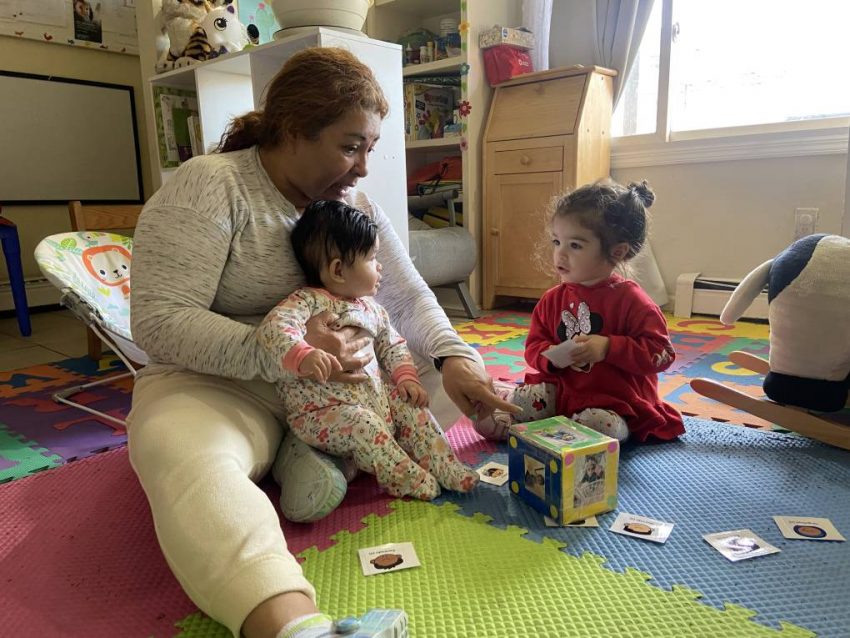
In earlier years, responses to scholar feelings and conflicts would fluctuate by instructor, typically primarily based on coaching or experiences, mentioned Lauren Prepare dinner, chief government officer at Ellis, which has three places within the metropolis. In late 2022, Ellis adopted a proper social and emotional studying program — SEL for brief — for the primary time, pairing on-line coaching for lecturers and classroom-based sources with visits from social-emotional coaches.
The college is a part of a small however rising wave of early studying applications in search of to construct or increase their social-emotional element within the wake of a pandemic that has led to more challenging student behavior and unprecedented turnover amongst youngster care staff. In Connecticut and New York, for instance, home-based youngster care suppliers have sought out extra formal coaching in SEL. Greater than 250 preschool classrooms in Florida and 150 Head Begin school rooms within the northeast have adopted a brand new SEL curriculum aimed particularly at addressing the pandemic’s toll on younger youngsters. And the federal authorities not too long ago put thousands and thousands towards increasing SEL applications within the earliest years.
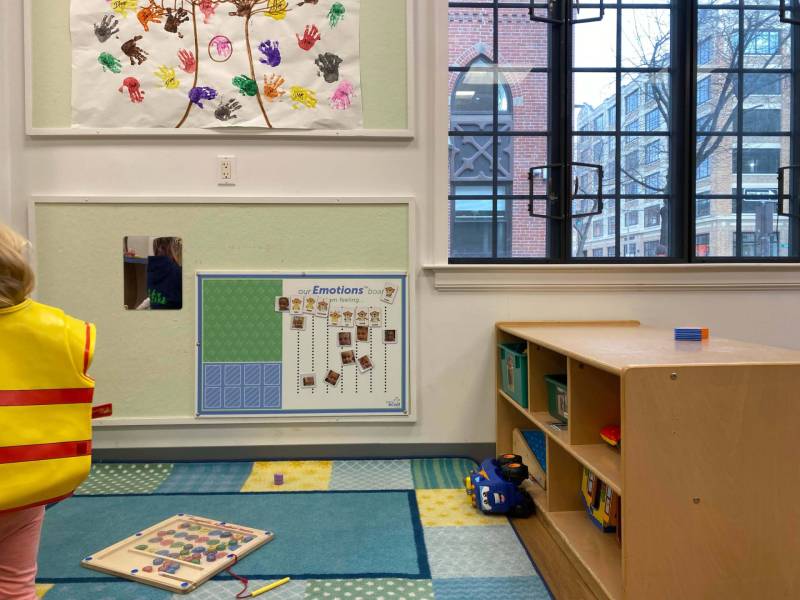
The necessity is actual. Analysis and educator surveys present that younger youngsters have been severely impacted by pandemic-related stress and trauma, such because the demise of family members and meals and housing safety, in addition to restricted alternatives for social interplay exterior of the house. Dad and mom and educators report extra younger youngsters are hyperactive, fearful, aggressive, and have hassle interacting with friends. Their lecturers, too, can profit tremendously from elevated assist in dealing with typically tough school rooms and habits.
“Popping out of the pandemic the place we’ve seen a lot more difficult habits and simply actually tough experiences that the children have gone by means of which can be exhibiting up of their habits,” mentioned Prepare dinner. “It’s much more vital to be devoting time and sources to this.”
But even applications for the youngest children haven’t escaped a number of the broader pushback and controversy over SEL, which opponents have accused of selling vital race principle, the concept the framework for racism is embedded in society, amongst different issues. Final 12 months in Louisiana, as an example, lawmakers and fogeys claimed that the state’s new early studying requirements may embody “potentially divisive concepts,” resembling gender id and systemic racism, inside SEL classes. (These requirements had been authorised twice by the state’s high college board, however early this 12 months the varsity board re-opened public remark.)
“We get to states the place, immediately, SEL has turn out to be a taboo phrase to make use of,” mentioned Mary Louise Hemmeter, a professor of particular schooling at Vanderbilt College. In January, Hemmeter was awarded an almost $12 million grant from the U.S. Division of Schooling for the nationwide growth of a social-emotional studying mannequin that she developed for youngster care applications, pre-Ok, and kindergarten school rooms. In some communities, Hemmeter mentioned, she’s very cautious within the language she makes use of to explain the SEL programming.
The occasional pushback has not considerably slowed SEL’s unfold for the youngest college students, nevertheless. Early childhood specialists say the aim is sort of easy: instructing youngsters primary social, emotional and cognitive abilities and how one can construct empathetic relationships with others.
“When you ask kindergarten lecturers what they need youngsters to have the ability to do after they come to kindergarten, it’s not write their title or know their letters,” Hemmeter mentioned. Kindergarten lecturers “need [kids] to have the ability to observe instructions. They need them to have the ability to persist at tough duties. They need them to have the ability to get together with different children and work collectively and have the ability to have interaction in classroom routines.”
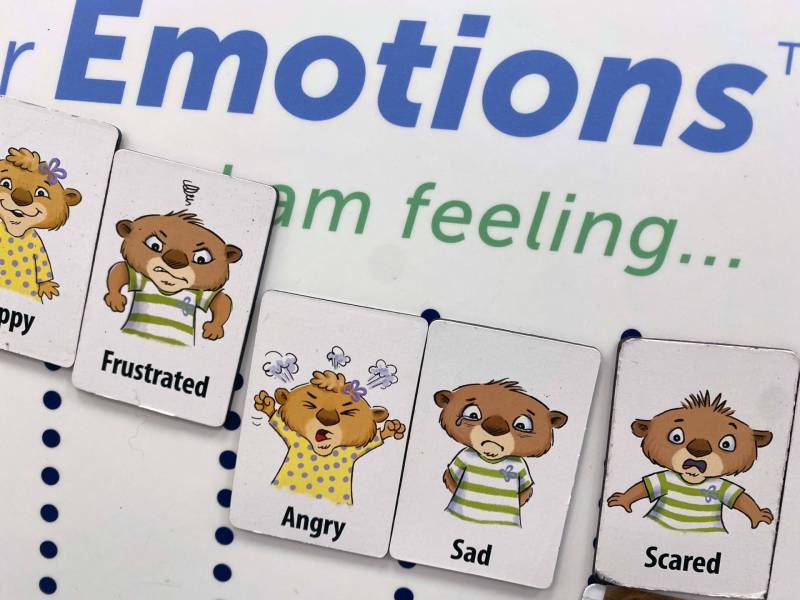
When Prepare dinner and her colleagues at Ellis Early Studying began wanting into SEL in 2020, they had been motivated partially by eager to ease the transition to elementary college, particularly for college kids who’ve skilled trauma. Greater than two-thirds of this system’s households face financial hardship and obtain monetary help from the state to pay tuition. Greater than 25 p.c of youngsters have energetic circumstances with town’s foster care system.
“There are large emotions, there have been traumatic occasions that children have witnessed,” mentioned Prepare dinner. “We’re giving [kids] autonomy and saying, ‘Your whole emotions are legitimate. You get to really feel them in a manner that’s protected for you and others.’”
“We actually have to construct capability in these areas earlier so by the point our children get to Ok-12, lecturers there can have a a lot simpler time, and the kid can have a a lot simpler time,” she added.
In any given classroom at Ellis, a customer will now hear the identical refrains echoed all through the day:
“Use your phrases!”
“How do you assume your good friend is feeling?”
“How did that make you’re feeling?”
Every day, lecturers ask college students to take time to establish their emotions by affixing their image subsequent to the title of the emotion they’re feeling on a chart. On a latest February morning in a preschool classroom, for instance, many of the class selected comfortable or excited, however one scholar chosen “pissed off.”
This illustration of emotions helps lecturers know how one can assist particular person college students. They could give a pissed off or offended youngster a break in a chilled nook, as an example. Or they may know to supply up a hug, a tune, an opportunity to play with objects from a sensory field or assist training deep respiration.
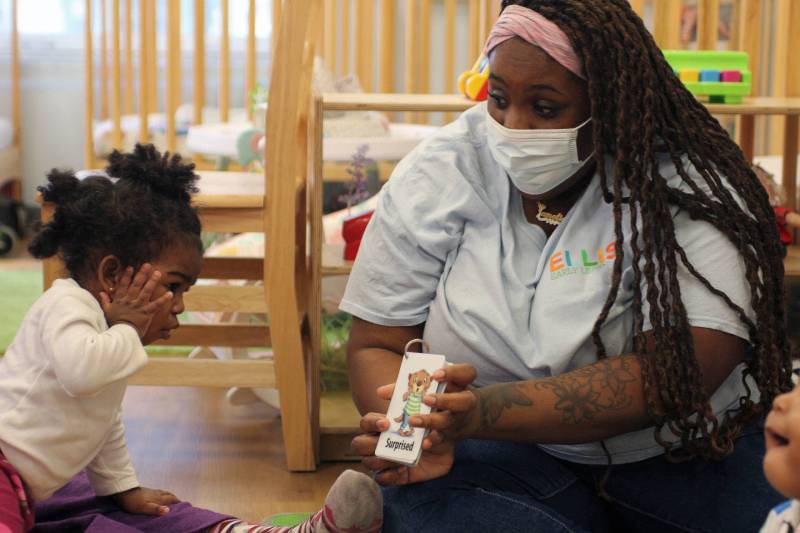
The concentrate on constructing emotional intelligence begins even earlier than college students can stroll or discuss. In a vivid toddler classroom, lead toddler instructor Jamalia Sheets held up a card with an image of a cartoon animal exhibiting a tragic face. “Look, she’s unhappy! Can we make a tragic face?” Sheets and her two co-teachers all mimicked a tragic face and made crying sounds. “Let’s make an offended face,” she mentioned, flipping to a different card and modeling an offended face. A 14-month-old toddling across the circle of lecturers mimicked the offended face. “Oooh take a look at that offended face! That’s what I’m speaking about,” Sheets mentioned, earlier than shifting on to mannequin pleasure, fear and shock.
Educating emotional competence from beginning is a key tenet of “start to ECSEL,” this system Ellis has adopted. Created by the nonprofit, Boston-based Housman Institute, the method capitalizes on the speedy mind improvement that occurs within the first few years of life, mentioned Donna Housman, founding father of the institute. “When the mind is overwhelmed by unfavorable feelings, it might’t study,” she mentioned. “Having the talents to cope with and regulate our personal feelings calms the mind.”
Ideally, these abilities shouldn’t be imparted randomly, specialists say. “The place it’s achieved very well, you may see [SEL] woven into on a regular basis practices within the classroom,” mentioned Tia Kim, a developmental psychologist and the vice chairman of schooling, analysis and influence for the Committee for Kids, which developed a world SEL program known as Second Step.
A growing body of research exhibits the long-term advantages of high quality social-emotional studying for youngsters: a rise in tutorial efficiency, higher classroom habits and better ranges of well-being as younger adults. One study discovered that low-income youngsters with stronger social problem-solving abilities initially of preschool realized math abilities sooner.
Furthermore, analysis exhibits that offering robust social-emotional coaching to lecturers in early studying applications can assist reduce persistent and frequent preschool suspensions — if these helps are achieved proper.
“When SEL contributes to decreasing instructor stress, that might profit expulsion charges,” mentioned Kate Zinsser, an utilized developmental psychologist and affiliate professor on the College of Illinois, Chicago and the author of “No Longer Welcome: The Epidemic of Expulsion from Early Childhood Schooling.” However, she added, “poorly carried out SEL helps may improve instructor stress.” That poor implementation consists of merely handing a instructor “one more curriculum” with out sufficient coaching or observations to allow the instructor to roll out SEL successfully.
It may be laborious for educators to decipher which SEL programs are beneficial and which aren’t. At Ellis, officers mentioned they had been drawn to the Housman Institute’s program as a result of a transparent record of successful outcomes for youngsters, however investigating alternate options can take time.
Prepare dinner is already seeing optimistic indicators that this system is having an influence. College students are higher in a position to work by means of upsetting conditions at college. And oldsters have reported that their youngsters are exhibiting extra empathy and curiosity about feelings and might extra clearly establish their emotions.
However one of the hanging impacts has been on Ellis’ lecturers, who now have extra methods to deal with a tense job, the various challenges that include educating younger youngsters, and their very own stressors exterior of labor.
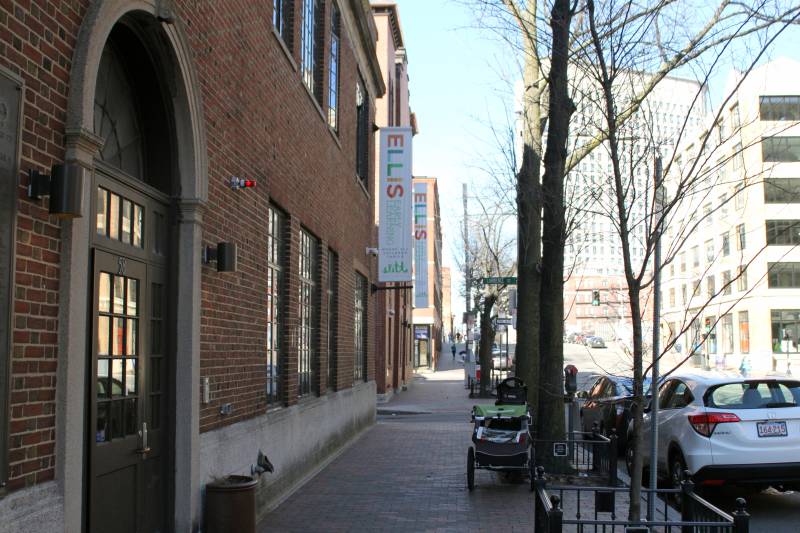
Whereas different industries have rebounded for the reason that pandemic hit, the early childhood business continues to be lagging, struggling to search out workers and maintain school rooms and applications open. Bigger coverage and financial adjustments are wanted, resembling extra federal funding and better pay for lecturers, but some educators say SEL can enhance instructor psychological well being and retention, a aim Prepare dinner has at Ellis.
“We’d like this job to be simpler for folks, as a result of it’s laborious,” mentioned Prepare dinner. “It could possibly solely be simpler after we equip them with the best instruments to allow them to handle their class efficiently.” She hopes that with the brand new emphasis on SEL, “lecturers will really feel they’ve a a lot stronger capability to handle their school rooms in a wholesome, optimistic manner, and likewise that the kids have even higher days.”
For Sheets, the toddler room instructor, the embrace of SEL has helped her higher regulate her feelings in addition to these of her college students — making it simpler to steadiness a tense, bodily taxing job and motherhood. The curriculum utilized by Ellis consists of a number of on-line instructor coaching modules on subjects like figuring out and managing feelings and how one can cope with stress. The aim is to assist lecturers handle their very own feelings and psychological well being first to allow them to then higher assist youngsters. “Understanding feelings inside your self, understanding feelings inside youngsters helps you go an extended method to serving to them foster wholesome youngster improvement,” Sheets mentioned.
It was throughout one among these on-line coaching classes that Sheets first heard the time period “poisonous stress,” or long-lasting stress as a result of frequent or extended adversity. Sheets realized then that experiences from what she mentioned was a tough childhood, together with 5 years residing aside from her mom, had been nonetheless impacting a few of her emotional responses as an grownup. The coaching has helped her handle her personal stress, which interprets into how she responds to youngsters and fashions habits. “Having the ability to decide up on sure issues that could possibly be stressors and regulate them earlier than you come into the skilled atmosphere with them, it’s been very useful,” she mentioned.
Nationwide, not all youngster care applications have the staffing and funding that make it doable to entry — and pay for — the standard SEL coaching and assist that specialists say is almost definitely to make a distinction for lecturers and kids alike. In Bridgeport, Connecticut, the nonprofit All Our Kin is making an attempt to fill that hole, providing social-emotional coaching to greater than 550 home-based educators in Connecticut and Bronx, New York.
Julia Zamora, a Connecticut-based residence youngster care supplier, had by no means had SEL coaching till she began working with a coach from All Our Kin. Zamora, who spent 22 years in her residence nation of Ecuador instructing older college students, primarily youngsters, mentioned there was nonetheless a lot to study when she began working with youthful youngsters two years in the past.
“Once I began receiving the coaching, I assumed to myself, ‘Wow, that is what I wanted,’” Zamora mentioned in Spanish by means of an interpreter. When Zamora began rolling out extra SEL methods and classes in her middle, she had youngsters enrolled who had autism and had been in foster care. “I wanted to navigate this and learn to cope with my new college students,” she mentioned. “Each youngster … they’ve lived by means of some actually laborious stuff. The straightforward instruments that I’ve realized have had a huge impact,” she mentioned.
“We’d like it, the kids want it,” Zamora added.
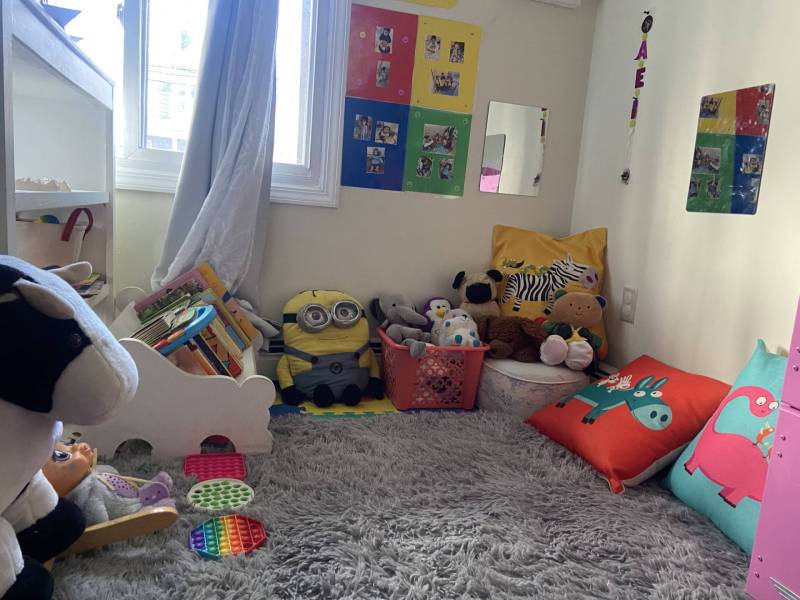
After a number of coaching classes with All Our Kin, Zamora created a “cozy nook” in her residence the place youngsters can retreat after they want a relaxed house. The house has mirrors so the kids can see how their faces look after they specific completely different feelings. She additionally makes use of a dice that has photos of the kids’s faces and completely different feelings to encourage the children to share their emotions and discuss completely different emotions. By the coaching, she has realized varied methods to adapt her method to youngsters primarily based on their feelings, together with by whispering to children who’re upset and overstimulated, providing hugs or encouraging youngsters to take time within the cozy nook.
Total, she mentioned, she feels extra assured and safe as an educator. “I’ve realized to interpret emotions when the kid will not be in a position to clarify to me with phrases what they’re feeling,” Zamora mentioned. “I’m continuously evaluating myself and re-evaluating the work I do, as a result of these youngsters should develop up in a protected atmosphere,” she mentioned. “Not solely bodily protected, however protected emotionally.”
Whereas helpful to educators, officers at Ellis mentioned their work could possibly be bolstered if mother and father embraced an analogous SEL method at residence to additional foster scholar habits, emotional intelligence and regulation. “It’s so vital as a result of if we’re instructing the kids about their social-emotional studying right here, after which at residence it’s not the identical, then there’s not essentially a steadiness,” mentioned Cherish Casey, a social employee at Ellis. “I believe it’ll actually assist the kids construct their social emotional regulation and emotional id if it’s a full circle, and the household is aware of the identical instruments that we’re instructing them.”
Source link
















